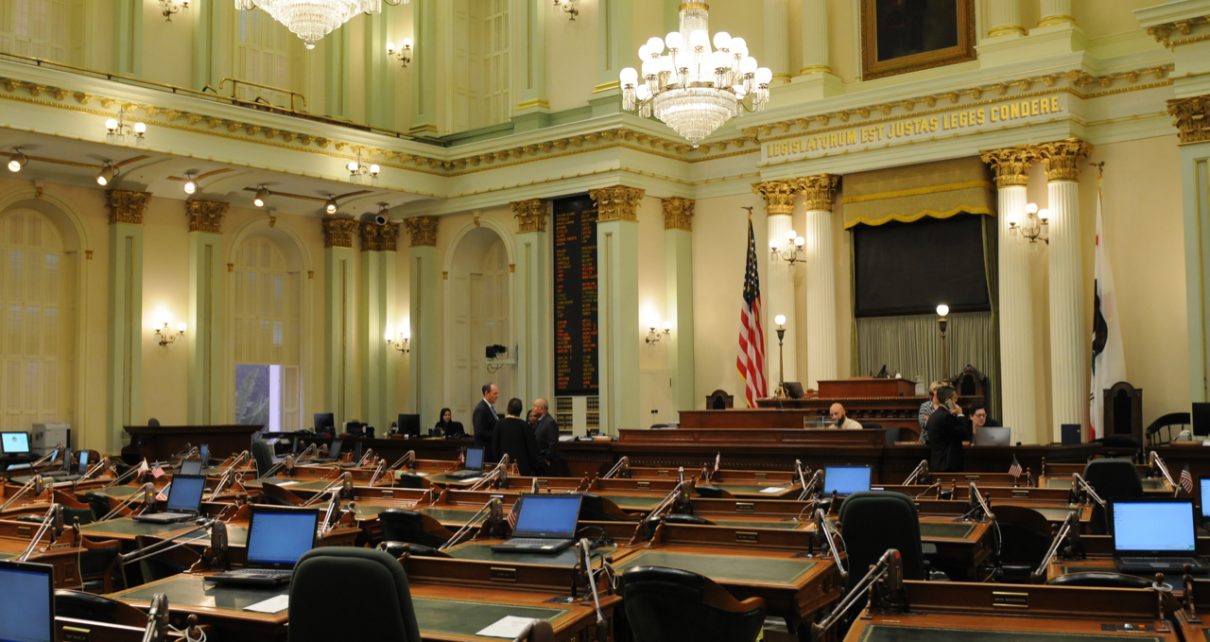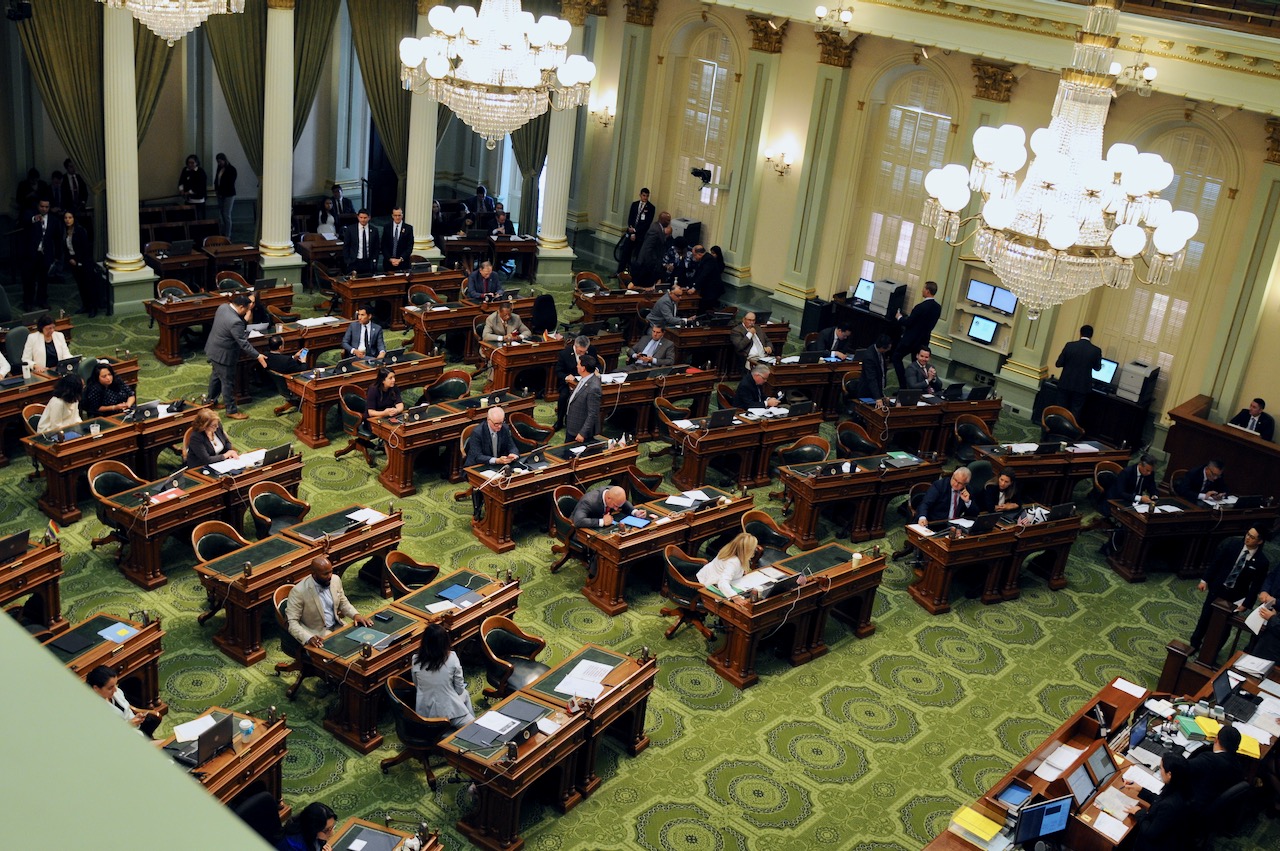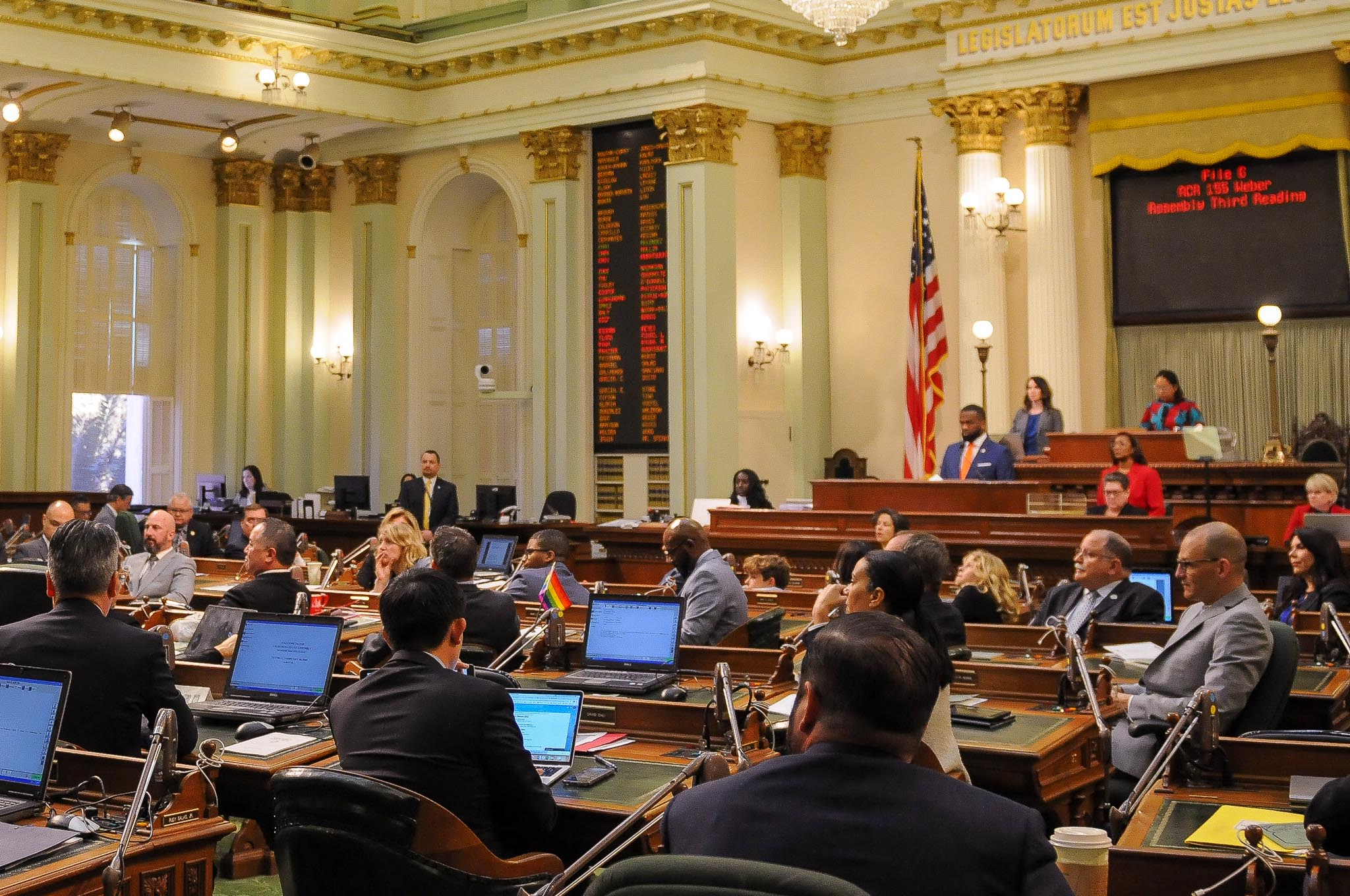
Calif. Assembly Chambers. (Photo: Kevin Sanders for California Globe)
Some Types of Bills Require Specified Statements
It is an excellent practice by the Office of Legislative Counsel to use explanatory statements in different types of legislation
By Chris Micheli, November 1, 2023 2:45 am
Urgency statutes, fiscal emergency statutes, and local or special statutes utilize explanatory statements. Of course, I would like to see more bills contain explanatory statements. Nonetheless, only two of these three types of measures are actually required to do so by the state Constitution.
However, it is an excellent practice by the Office of Legislative Counsel (OLC) to use explanatory statements in all of the different types of legislation. Let’s take a closer look at these three types of bills:
Article IV, Section 8(d) concerns urgency statutes. It provides the following:
(d) Urgency statutes are those necessary for immediate preservation of the public peace, health, or safety. A statement of facts constituting the necessity shall be set forth in one section of the bill. In each house the section and the bill shall be passed separately, each by rollcall vote entered in the journal, two thirds of the membership concurring. An urgency statute may not create or abolish any office or change the salary, term, or duties of any office, or grant any franchise or special privilege, or create any vested right or interest.
As the reader can see, Section 8(d) requires “a statement of facts” that explain the reason for the urgency and why the bill should take effect immediately. The following is an example of this type of language in a bill from the 2023 Session (the boldface type is the boilerplate language):
This act is an urgency statute necessary for the immediate preservation of the public peace, health, or safety within the meaning of Article IV of the California Constitution and shall go into immediate effect. The facts constituting the necessity are:
In order to ensure that the state takes immediate action so that the information posted prior to October 1, 2026, by the Department of Toxic Substances Control on its internet website pursuant to Section 42456 of the Public Resources Code continues to be posted on the department’s internet website after that date, it is necessary that this act take effect immediately.
Article IV, Section 10(f) concerns fiscal emergencies. It provides the following:
(f) (1) If, following the enactment of the budget bill for the 2004–05 fiscal year or any subsequent fiscal year, the Governor determines that, for that fiscal year, General Fund revenues will decline substantially below the estimate of General Fund revenues upon which the budget bill for that fiscal year, as enacted, was based, or General Fund expenditures will increase substantially above that estimate of General Fund revenues, or both, the Governor may issue a proclamation declaring a fiscal emergency and shall thereupon cause the Legislature to assemble in special session for this purpose. The proclamation shall identify the nature of the fiscal emergency and shall be submitted by the Governor to the Legislature, accompanied by proposed legislation to address the fiscal emergency.
(2) If the Legislature fails to pass and send to the Governor a bill or bills to address the fiscal emergency by the 45th day following the issuance of the proclamation, the Legislature may not act on any other bill, nor may the Legislature adjourn for a joint recess, until that bill or those bills have been passed and sent to the Governor.
(3) A bill addressing the fiscal emergency declared pursuant to this section shall contain a statement to that effect.
As the reader can see, Section 10(f)(3) requires “a statement to that effect” for the fiscal emergency and why the bill is needed to address the fiscal emergency. The following is an example of this type of language in a bill from the 2008 Session (the boldface type is the boilerplate language):
This act addresses the fiscal emergency declared by the Governor by proclamation on January 10, 2008, pursuant to subdivision (f) of Section 10 of Article IV of the California Constitution.
Article IV, Section 16 concerns general and special statutes. It provides the following:
(a) All laws of a general nature have uniform operation.
(b) A local or special statute is invalid in any case if a general statute can be made applicable.
As the reader can see, Section 16 does not require any statement.to be included. However, the OLC requires these types of bills to include an explanation of why a general statute cannot be used in this particular bill. The following is an example of this type of language in a bill from the 2023 Session (the boldface type is the boilerplate language):
The Legislature finds and declares that a special statute is necessary and that a general statute cannot be made applicable within the meaning of Section 16 of of Article IV of the California Constitution because of the need to provide a local funding option to meet the transportation needs of the County of Riverside.
- Legislative Policy on Bay Area Pilotage - July 26, 2025
- Small Craft Harbors and Waterways in California - July 25, 2025
- Disability of Parties in Civil Actions - July 24, 2025








In addition, the Sunshine Amendment (2004) should be read to require an explanatory statement when the Legislature narrows the public records or open meetings laws.